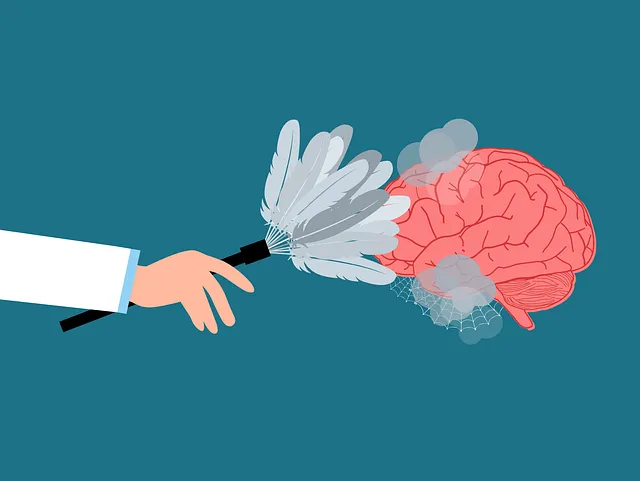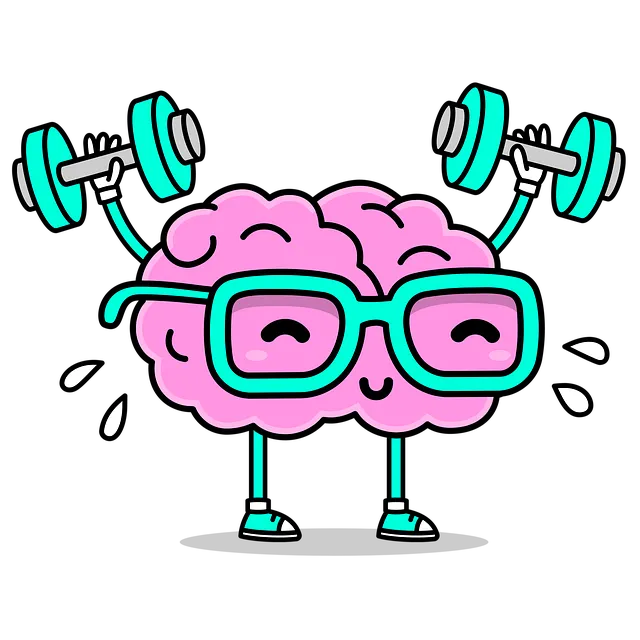Kaiser Permanente's holistic well-being initiatives in Wheat Ridge, Colorado, focus on building resilience through the RFM framework—Recovery, Flexibility, and Mastery. Their innovative training programs include practical exercises like Empathy Building Strategies, Communication Strategies, and Stress Reduction Methods to enhance mental health awareness and emotional coping skills among staff. This structured approach ensures effective resilience-building by combining evidence-based exercises with continuous monitoring and feedback, ultimately strengthening psychological balance in the demanding healthcare environment.
“Resilience is a game-changer in today’s fast-paced world, and organizations like Kaiser Permanente recognize its value. This article explores the power of RFM (Resilience, Flexibility, and Mobility) and its impact on building mental fortitude. We delve into Kaiser Permanente’s innovative training programs in Wheat Ridge, showcasing their commitment to employee well-being. Additionally, a step-by-step guide is provided for implementing resilience-building exercises, offering practical strategies for both personal and professional growth.”
- Understanding RFM and its Impact on Resilience
- Kaiser Permanente's Approach to Training Programs in Wheat Ridge
- Implementing Resilience Building Exercises: A Step-by-Step Guide
Understanding RFM and its Impact on Resilience

Resilience, the ability to adapt and bounce back from adversity, is a cornerstone of mental well-being. This is where RFM (Recovery, Flexibility, and Mastery) steps in as a powerful framework. Inspired by Kaiser Permanente training programs in Wheat Ridge, these exercises are designed to empower individuals to navigate life’s challenges with greater resilience. By focusing on recovery from past traumas or stressful events, fostering flexibility in the face of change, and cultivating a sense of mastery over one’s thoughts and actions, RFM becomes an effective tool for enhancing overall well-being.
The implementation of these exercises goes beyond mere knowledge transfer; it involves practical, hands-on learning. Activities like Empathy Building Strategies and Communication Strategies are integral to the process, encouraging participants to develop deeper understanding and connection with themselves and others. Additionally, Stress Reduction Methods play a pivotal role in teaching individuals how to manage stress, thereby strengthening their resilience muscles.
Kaiser Permanente's Approach to Training Programs in Wheat Ridge

Kaiser Permanente, a leading healthcare organization, has implemented innovative training programs in Wheat Ridge, Colorado, focusing on employee well-being and resilience. Their approach prioritizes holistic development, encompassing both physical and mental health. The training initiatives aim to equip employees with effective coping skills to navigate life’s challenges, fostering an environment of support and positive thinking.
These programs delve into various aspects of mental health awareness, offering strategies for stress management and emotional well-being. By integrating these practices into their workplace culture, Kaiser Permanente promotes a sense of resilience among its staff. The organization recognizes that building mental fortitude is essential in today’s demanding healthcare environment, ensuring employees can provide exceptional patient care while maintaining their own psychological balance.
Implementing Resilience Building Exercises: A Step-by-Step Guide

Implementing Resilience Building Exercises involves a structured approach to enhance emotional well-being and mental wellness among individuals or teams. Kaiser Permanente training programs in Wheat Ridge have shown significant success with this method, offering valuable lessons for organizations aiming to foster resilience. Here’s a step-by-step guide:
1. Assess Needs: Begin by identifying the specific needs of your audience. Are they facing high stress levels, anxiety, or do they require emotional well-being promotion techniques? Tailor your exercises accordingly.
2. Choose Evidence-Based Exercises: Select resilience building exercises backed by scientific research. These could include mindfulness practices, cognitive reframing techniques, and stress management strategies. The Kaiser Permanente training programs in Wheat Ridge often incorporate these evidence-based methods for optimal results.
3. Design a Comprehensive Program: Develop a program that combines various exercises to address multiple aspects of mental wellness. Include physical activities, breathing techniques, and mental coaching sessions. Ensure the program is interactive and engaging to foster active participation.
4. Pilot Test and Refine: Before full-scale implementation, conduct a pilot test with a small group. Gather feedback and refine your program based on their experiences. This step ensures that the exercises are effective and suitable for your target audience.
5. Train Facilitators: Equip facilitators or coaches with the necessary skills to guide participants through the exercises effectively. Consider offering mental wellness coaching programs development opportunities to ensure competent delivery.
6. Implement and Monitor Progress: Roll out the program and regularly monitor its impact. Collect feedback from participants and make adjustments as needed. Regular evaluation ensures that the resilience building exercises remain relevant and effective over time.
Resilience is a vital asset for individuals and organizations alike, enabling them to navigate challenges and thrive. As demonstrated by Kaiser Permanente’s successful training programs in Wheat Ridge, implementing resilience-building exercises (RFM) can significantly enhance one’s capacity to cope with stress and adversity. By following the step-by-step guide outlined in this article, individuals and institutions can effectively integrate RFM into their routines, fostering a culture of resilience that reverberates throughout various aspects of life and work.






